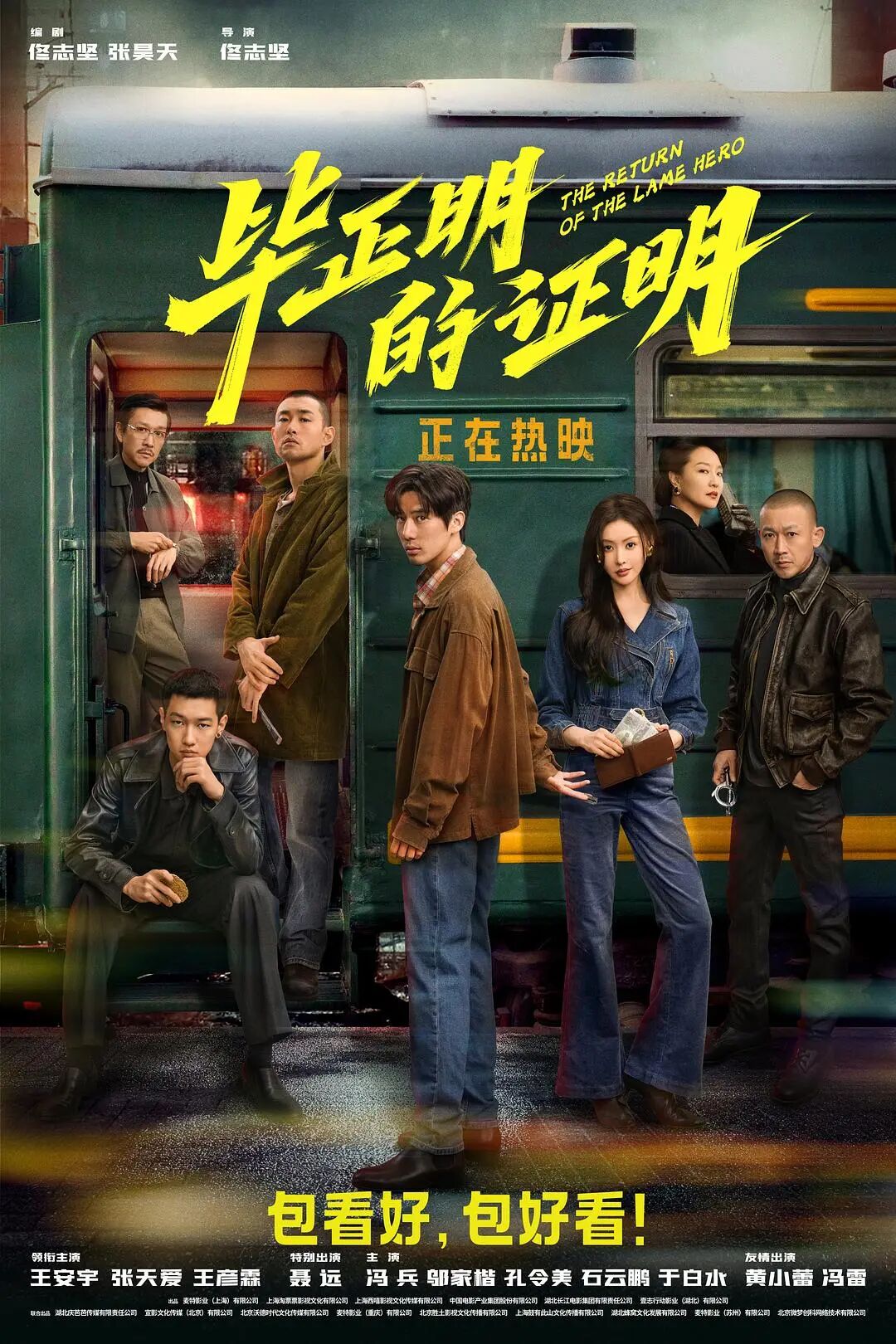BJIFF National Day Film Season Special Recommendation: Lawyers & Police Officers Unite, Justice Always Prevails
The National Day-Mid-Autumn Festival holiday has already passed its midpoint, yet the popularity of the National Day film releases remains undiminished. Today, our "BJIFF National Day Film Season Special Recommendation" column introduces two outstanding realist films: Sound of Silence and The Return of The Lame Hero.
As China's first realist film focusing on protecting the deaf community from fraud, Sound of Silence tells a poignant story of ethical choice. The protagonist, Li Qi (played by Tan Jianci), is a CODA (Child of Deaf Adults) lawyer who believes that "as a lawyer, you must have either fame or fortune". Hailing from a deaf family and fluent in sign language, Li Qi is recommended to take on a legal aid case representing a deaf client. Initially motivated by the prospect of raising his profile, he accepts the case and gains instant recognition for his outstanding performance. However, as the investigation progresses, he gradually uncovers a much larger and more complex fraud scheme underlying the case - one aimed specifically at the deaf community. Though tempted to retreat, Li Qi is torn between ambition and conscience. What choice will he ultimately make?

Poster of Sound of Silence
Sound of Silence exposes the inner workings of a fraudulent scheme specifically designed to target the deaf community. The film draws partly on the real-life professional experiences of CODA lawyer Zhang Qi. Zhang Qi is a partner at Shanghai DiamonDLegal & Partners Law Firm and a member of the Legal Aid Committee of the Shanghai Bar Association. His practice spans civil, criminal, and matrimonial/family cases, having handled over one hundred representative cases - 46% of which involved financial fraud targeting deaf individuals. Notable examples include the case to invalidate Dou's home purchase contract, a series of financial fraud cases affecting the deaf community, and Wu's property mortgage dispute.
Zhang Qi believes the deaf community has a significant need for legal aid. Due to hearing impairments, they only believe what they see, making them more vulnerable to scams. Furthermore, they typically lack knowledge of relevant laws and are unsure how to address fraudulent situations. Therefore, Zhang Qi hopes to assist the deaf community as much as possible within his capabilities. It is precisely this aspiration that inspired the creation of the character "Li Qi" in Sound of Silence. He is a portrayal of someone rediscovering their moral compass in reality and striving to support the deaf community with full dedication. As Li Qi states in the film, "Only by speaking out can there be a chance to be heard."

Poster of Sound of Silence
While Sound of Silence demonstrates a profound humanistic care in its persistent pursuit of justice, The Return of The Lame Hero - focusing on the same theme of justice - turns its lens to the green trains of the 1990s, presenting a fierce and fervent battle against pickpocketing.
The film tells the story of how Bi Zhengming (played by Wang Anyu) transforms from an inexperienced young police officer through a journey of growth, ultimately emerging as a true heroic figure.

Poster of The Return of The Lame Hero
Bi Zhengming's childhood ambition to become an anti-pickpocketing officer was sparked by an incident in which he witnessed police successfully apprehend a thief on a train. However, his first day on the job took an unexpected turn: not only did a pickpocket slash his trouser pocket, but a struggle with another thief left him permanently injured, resulting in a bitterly ironic disability certificate. He had dramatically transformed into a "one-day policeman". While this seemed like sheer misfortune for the impulsive rookie, his disabled status unexpectedly became his perfect disguise, allowing him to infiltrate the thief syndicate "Rong Men". There, he even became an apprentice to none other than Big White Peach (played by Zhang Tian'ai) - the very thief who had slit his pocket. Walking on eggshells in the thieves' den, how will this passionate young man gradually master various stealing techniques and brave the underworld's "Hero Gathering" competition? Can he hold fast to his original mission and ultimately bring the entire criminal network to justice?
The Return of The Lame Hero features tight, brisk editing and a lighthearted, humorous tone filled with genuine laughs. The film presents a complex tapestry of characters: alongside the "upright" figures like Bi Zhengming and Captain Zhou (played by Nie Yuan), the thief syndicate "Rong Men" exudes a certain chivalric code of the underworld. Sister Man (played by Kong Lingmei), the former leader, has since settled into running a barbershop, seemingly severing all ties with the "Rong Men". The current leader, Fourth Master (played by Feng Bing), wishes to retire and enjoy his remaining years in peace. However, undercurrents of conflict surge between the heir apparent, Young Master (played by Wu Jiakai), and Flower Hands (played by Wang Yanlin) - a figure with no claim to succession yet holding unique influence. Within Young Master's faction, Horizontal One Unit Captain Big White Peach (played by Zhang Tian'ai), leading members like Jiang Mitiao (played by Shi Yunpeng) and Er Bao (played by Yu Baishui), stands out for her exceptional skill. Yet, many covet her position. Although Big White Peach consistently adheres to her own code as a "thief", the escalating power realignment within "Rong Men" ensnares everyone deeper, making a clean escape seem increasingly unlikely.

Big White Peach (played by Zhang Tian'ai) in The Return of The Lame Hero
Sound of Silence and The Return of The Lame Hero represent significant explorations in the breadth of subject matter and depth of narrative within domestic realist cinema, each through a distinct lens: the former tackles the specific social issue of protecting the deaf community from fraud, while the latter is set against the specific historical backdrop of anti-pickpocketing campaigns in the 1990s. The first film exposes the vulnerabilities faced by marginalized groups in information-asymmetric environments by focusing on the specific risks targeting the hearing-impaired community. The second offers a unique perspective on social change by reconstructing law enforcement scenarios from the pre-information era. Together, these works demonstrate how Chinese realist storytelling is branching into more vertical and specialized domains, deriving its core value from using authentic portrayals of specific issues to spark public awareness and reflection on broader societal themes.
From an industry standpoint, the consistent production of such films indicates a growing inclusivity and support for diverse genres within China's film industrialization process, as well as valuable practical experience in the commercial adaptation of diverse thematic material.

